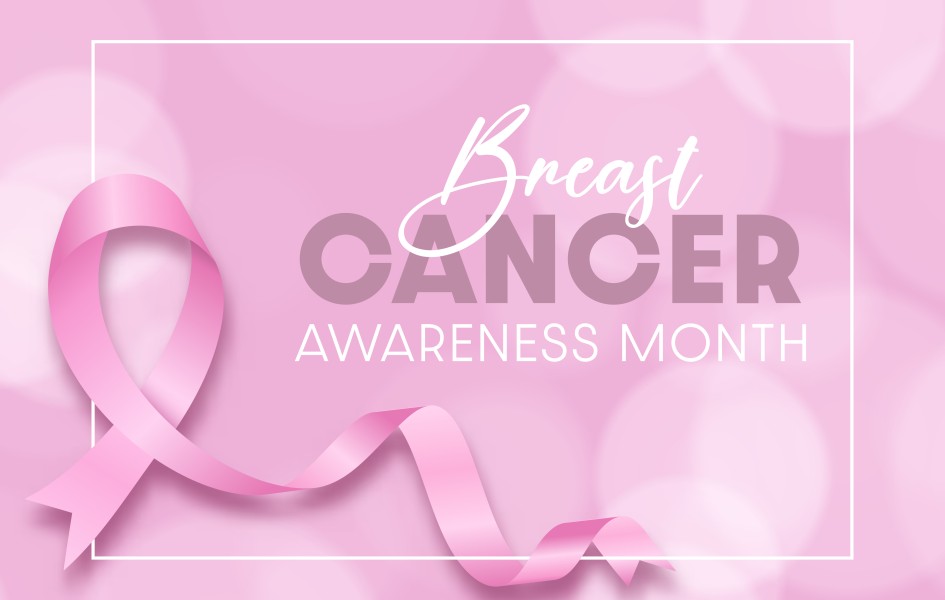Breast Cancer Awareness: Empowering Healthcare Professionals through Doctor Surveys
October is Breast Cancer Awareness Month, also known as "Pink October," a time when individuals, organizations, and communities worldwide come together to spread awareness about breast cancer. From wearing pink ribbons to participating in awareness campaigns, the global effort focuses on educating people about breast cancer's risks, symptoms, and treatments. But there’s another critical aspect of this fight that often goes unnoticed—healthcare professionals' role in contributing to research and improving treatment outcomes through doctor surveys completion.
Understanding Breast Cancer: A Global Health Challenge
Breast cancer remains the most common cancer worldwide, with over 2.3 million new cases reported annually. Shockingly, this cancer represents one in eight cancer cases globally, affecting both men and women. Unfortunately, it contributes to 70% of cancer-related deaths in resource-constrained regions, where access to early detection services remains low. Limited awareness, systemic barriers, and lack of resources lead to late-stage diagnoses, especially among younger populations, resulting in premature deaths.
Early detection is essential. Yet, many women, particularly in under-resourced regions, don’t have access to adequate screening or education about breast health. By improving healthcare systems and increasing awareness, we can lower mortality rates. Healthcare professionals, including oncologists, are vital in this mission. Their insights through doctor surveys can help bridge the gap in knowledge and reshape healthcare systems to better serve patients.
How Does Breast Cancer Develop?
Breast cancer occurs when the cells in one or both breasts grow uncontrollably. Cancer may begin in the milk ducts
(ductal carcinoma) or the glands (lobular carcinoma). When untreated, cancer can invade surrounding tissues and
metastasize to other body parts, such as the lymph nodes, liver, bones, or brain. Breast cancer may also be "in
situ," where it hasn’t spread beyond its origin, or "invasive," where it penetrates deeper tissues.
Breast cancer can present many symptoms, including:
- A lump or mass found in or near the breast or underarm area.
- Changes in breast size, shape, or skin texture.
- Unusual nipple discharge
- Swelling, redness, or warmth in the breast
These early signs should prompt immediate medical attention. Healthcare professionals play a key role in diagnosing these symptoms early, and their ongoing participation in doctor surveys enhances research and development in detection tools and treatments.
Types of Breast Cancer
Breast cancer is a complex disease with various types, each presenting unique challenges for healthcare professionals. These include:
- Ductal Carcinoma in Situ (DCIS): The earliest form of cancer, localized in the milk ducts, but can become invasive if untreated.
- Lobular Carcinoma in Situ (LCIS): Found only in the lobules, this condition increases future cancer risk.
- Invasive Ductal Carcinoma (IDC): The most common form, IDC begins in the milk ducts and spreads to other tissues.
- Invasive Lobular Carcinoma (ILC): This cancer starts in the lobules and can spread elsewhere.
Other rare but significant types include mucinous carcinoma, triple-negative breast cancer, and inflammatory breast cancer. Each subtype requires unique research approaches to optimize treatment, and oncologists are the frontline in helping develop those treatments by participating in doctor surveys.
Lowering Your Risk: The Role of Lifestyle Choices
While no one can entirely prevent breast cancer, research has shown that certain lifestyle changes can significantly reduce the risk of developing the disease. These changes include:
- Limiting alcohol consumption
- Maintaining a healthy weight
- Engaging in regular physical activity
- Breastfeeding
- Quitting smoking
- Avoiding prolonged hormone therapy post-menopause
However, even for individuals at high risk, early detection remains the most effective way to increase survival rates. Healthcare professionals’ engagement in doctor surveys contributes valuable information that can guide prevention programs and public health campaigns.
Current Treatments and the Role of Doctor Surveys
Treating breast cancer typically begins with surgery, such as a lumpectomy or mastectomy, often followed by radiation, chemotherapy, or hormone therapy. The treatment plan depends on factors like cancer stage, tumor growth speed, and the patient’s overall health. Oncologists and physicians may also recommend targeted therapy or immunotherapy in more advanced cases.
But the fight against breast cancer doesn’t end with traditional treatment methods. Ongoing research, fueled by data collected from doctor surveys, is essential to improving current therapies and finding new ways to combat the disease. These surveys allow oncologists and other healthcare professionals to share their real-world experiences, helping to shape future treatment guidelines.
Empowering Change: How Doctor Surveys Drive Healthcare Research
One of the most efficient ways for doctors, physicians, and healthcare professionals to contribute to breast cancer research is by participating in doctor surveys. These surveys provide critical insights into treatment outcomes, patient care, and emerging trends in breast cancer care. At My Medical Panel (MMP), we strive to empower healthcare professionals to make meaningful contributions to healthcare research.
We offer up to $1,000 per completed doctor survey, allowing professionals to earn honoraria while helping improve breast cancer care. Whether you’re a physician, oncologist, or any other healthcare specialist, your voice matters. Through your participation in doctor surveys, you can directly influence the future of breast cancer and other medical research, making it more robust and patient focused.
With over 75 medical specialties available on My Medical Panel, you can find surveys that fit your expertise and schedule. By joining our platform, you’re not just taking part in research—you’re helping to make a lasting impact on the global fight against breast cancer and other diseases.
Conclusion: Be Part of the Solution
Breast cancer remains a formidable health challenge, but with the help of healthcare professionals, we can change that. By contributing to doctor surveys, you are making an invaluable impact on breast cancer research, helping to improve treatments, and driving progress toward better patient outcomes. Together, we can create a future where early detection and effective treatment are accessible to all.
Sign up with My Medical Panel today and join the fight against breast cancer. Complete doctor surveys and empower yourself to make a difference in healthcare.










